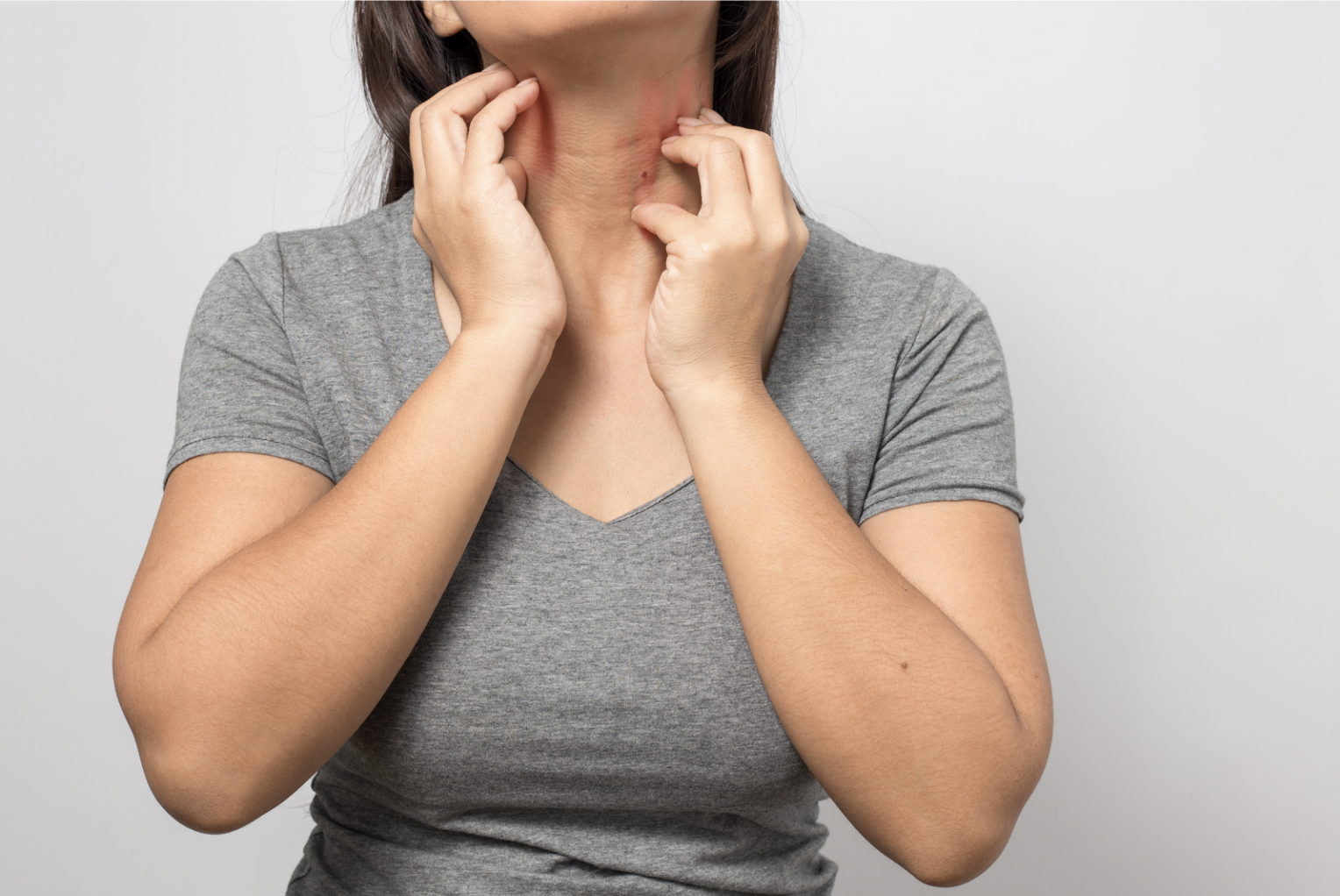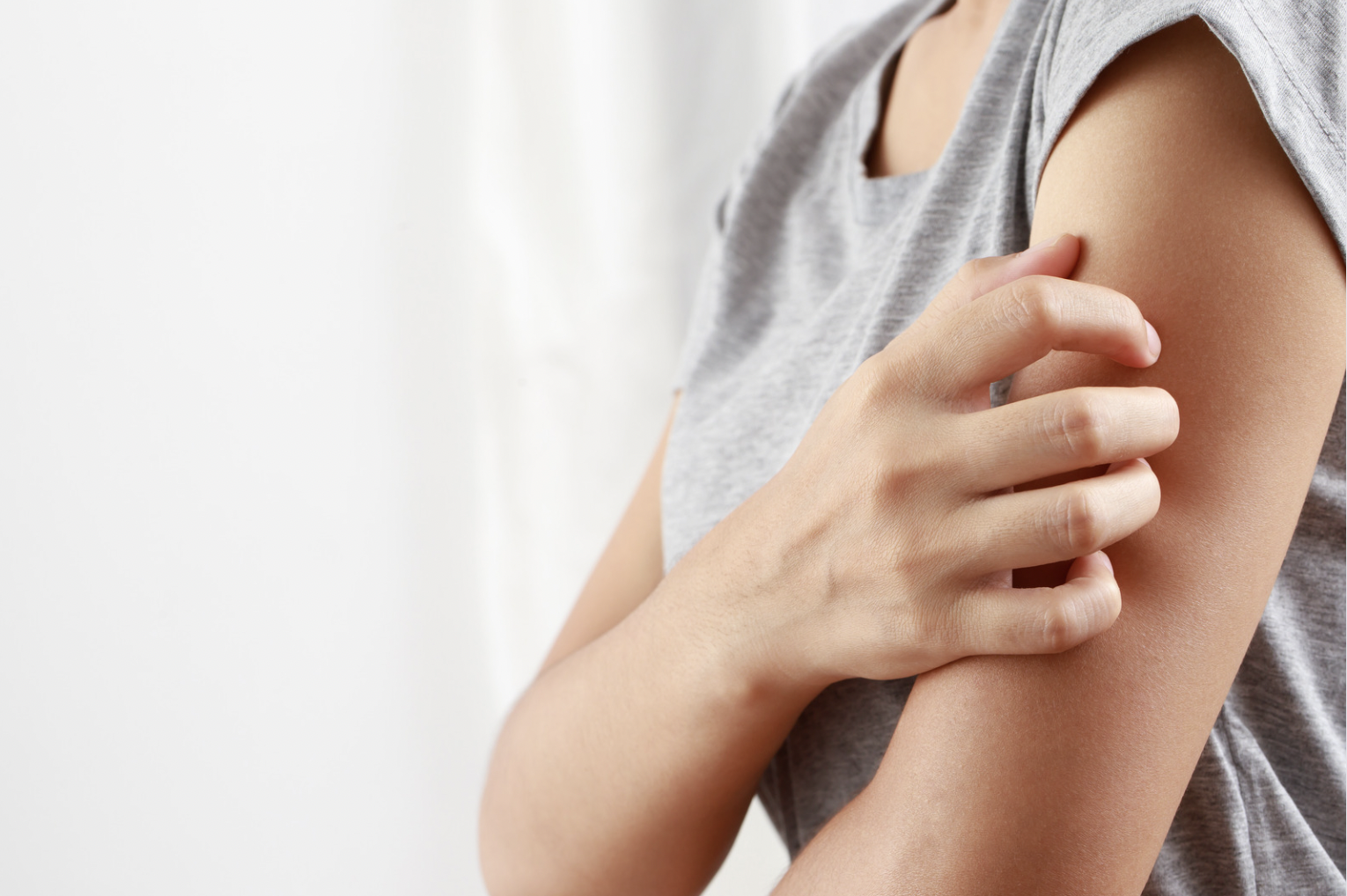
PRURITUS
Do you often feel the urge to scratch your skin? If so, you may be experiencing pruritus. Pruritus can be a nuisance, but thankfully, treatments are available to help. It can be caused by various factors, including allergies, dry skin, and infection. This article will discuss the symptoms and treatment options for pruritus and lots more.
What Is Pruritus and Its Symptoms?
Pruritus is a condition that causes an itchy sensation on the skin. The itch may be mild or severe, and it can occur anywhere on the body. Pruritus is often accompanied by:
- Redness
- Swelling of the skin
- Scratch marks
- Spots or blisters
- Cracked dry skin
- Scaly patches
What Causes Pruritus?
Pruritus can be caused by various factors, including allergies, dry skin, and infection.
Allergies are the most common cause of pruritus. They can be caused by a variety of things, including:
- Food
- Pollen
- Insect Bites
- Medicines
- Pet dander
Dry skin is another common cause of pruritus; this can be caused by:
- Weather changes
- Using harsh soaps
Infection is another possible cause of pruritus; this can be caused by:
- Bacteria
- Viruses
- Fungi
- Parasites

How Is Pruritis Treated?
Pruritus can be treated with various methods, depending on the underlying cause.
- Allergies can be treated with antihistamines or immunotherapy.
- Dry skin can be treated with moisturizers or corticosteroids.
- Infection can be treated with antibiotics or antifungals.
How Is Pruritis Treated?
Pruritus is diagnosed based on the symptoms. A physical examination and skin tests may also be performed.
If you think you may be experiencing pruritus, talk to your board-certified dermatologist. They will be able to help you determine the cause and create a treatment plan. Pruritus is a treatable condition, so don’t hesitate to seek help.
How Can You Prevent Pruritis?
Prevention is said to be better than cure, but there is no surefire prevention method with pruritus. However, there are some things you can do to reduce your risk.
These include:
- Avoid triggers, such as allergens and irritants.
- Maintain good hygiene.
- Use moisturizing products.
- If you have pruritus, it is important to avoid scratching the affected area to prevent further irritation.
Are There Any Home Remedies for Pruritis?
A few home remedies may help relieve the itch associated with pruritus. These include:
- Applying a cool compress to the affected area
- Taking a colloidal oatmeal bath
- Using over-the-counter hydrocortisone cream
When Should You See A Doctor About Pruritis?
If self-care measures do not relieve the itch or if the itch is interfering with your daily life, you should see a doctor. Pruritus can signify an underlying medical condition, so it is vital to get a proper diagnosis.
Final Thoughts
Itching can be very discomforting, especially in public places where you have to suppress the urge to scratch. Pruritus can have many causes, some of which are very serious. If self-care measures do not relieve your itch, see a doctor, and get a proper diagnosis and treatment plan. Pruritus is treatable, so seek help.
Thousands of Bronxites Trust Dermatology and Surgery Associates
Dermatology & Plastic Surgery Under One Roof
Learn More About Our
Dermatology Services
Learn More About Our
